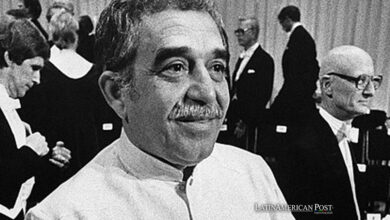Haiti: massive marches against President Jovenel Moïse
Listen this article
Since February 7, Haitian citizens have taken to the streets demanding the resignation of the president. What are the reasons?

On February 7, symbolic date of the fall of the Duvaliers in 1986, demonstrations around the country exploded, demanding the resignation of the current President Jovenel Moïse. As of the writing date of this article, more than ten days have passed and citizen mobilization continues.
Leer en español: Haití: marchas masivas en contra del presidente Jovenel Moïse
Only after a week, the afternoon of the previous Thursday, February 14, Moïse appeared on the national television TNH. He said in Creole, the official language of the country, that he was not going to resign and that he would complete the 5-year term.
What is the background and what could happen now?
Also read: Haiti sinks in political instability
Discontent history
As the writer and professor Lyonel Trouillot explained for the portal Le Point, the current events have their antecedents since the election of Michel Martelly, the predecessor of Moïse, in 2011. They were contested by the native population and validated by the international community, more even for "the taste for opulence and affection for the Duvalier regime", which Martelly professed openly.
Years later, in 2016, after Martelly's attempt to govern for a second term, Jovenel Moïse won the presidential elections with great support from the parliament and with only 20% participation in the voting. New promises and new expenses. Once again, the international community validates.
Finally, in July 2018, massive demonstrations exploded because of a 50% increase in oil products. The scandal of Petro Caribe also exploded, which consisted, according to Trouillot, in the fact that there is no evidence of "almost any trace of the funds taken from the sale of Venezuelan oil in 8 years. According to the most conservative figures, approximately 2 billion dollars. A report published by the Superior Court of Accounts and Administrative Containment (CSCCA), considered numerous irregularities and implicated a company directed by the president before his election". Consequences: resignation of the prime minister and a new call for dialogue.
Current manifestations
After the publication at the end of January of the state of the economy and deviations of the money of Petro Caribe, as El Espectador affirms, the discontent of the people went on the air and finally exploded in the demonstrations that began on February 7. So far, at least 7 people have died and the country is paralyzed. The embassies of the United States and Canada have recommended through official means that they do not travel to the country and that diplomatic officials do not leave the house, the Miami Herald said.
In his first official statement on national television, President Jovenel Moïse said he would not resign leaving "the country in the hands of armed gangs and drug traffickers". Facing the transit government that is being demanded, he believes that "we have already known a series of transitional governments that have left a lot of disasters and disasters". Finally, regarding his proposals to solve the country's crisis, he only said that his prime minister would soon explain a series of economic measures to calm the country's misery.
Le Premier ministre @jeanhenryceant va annoncer dans les heures qui suivent les mesures économiques arrêtées pour soulager la population dans cette conjoncture particulière.
— Président Jovenel Moïse (@moisejovenel) 15 de febrero de 2019
The popular discontent has not been disguised. In declarations collected in El Espectador, Vanel Louis Paul, a protester, declared that "the president lied to us. His promises of jobs so that we can finally have money to pay for our food were a hoax. It has been in power for two years and the people are even more hungry".
Prophète Hilaire, another protester, said that "it is a popular insurrection. Haitians occupy the streets and it is clear that the president has no choice but to resign". Finally, in front of Moïse's statement on Thursday, Cesar, an inhabitant of the city center who helps fill drums with water, told La Croix that "He (Moïse) did not say anything at all, so he even aggravated the situation because, with his arrogance to speak to us as he did, he gave us his back".
For the moment, we must wait for the reaction of citizens to the proposals that the government will eventually publish. Even so, new demonstrations are planned for this week, according to announcements from the radical opposition. Everything seems to indicate that, unless Moïse finally declares a transitional government, the demonstrations will not stop and the Caribbean country will continue to show resistance to government corruption.
LatinAmerican Post | Juan Gabriel Bocanegra
Translated from "Haití: marchas masivas en contra del presidente Jovenel Moïse"





